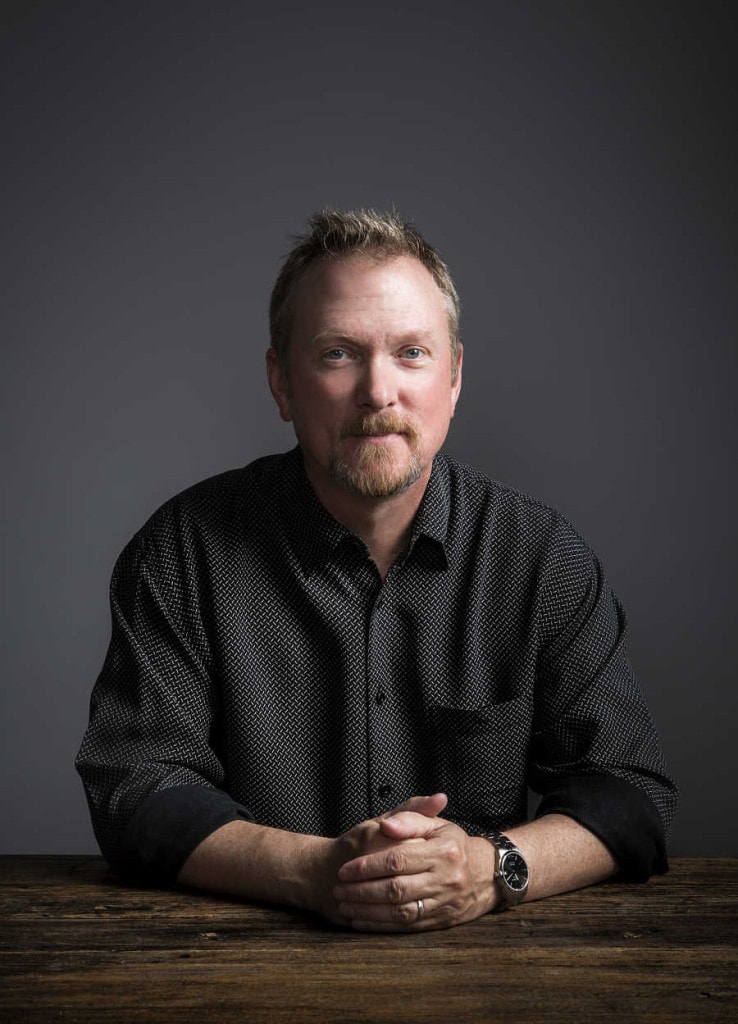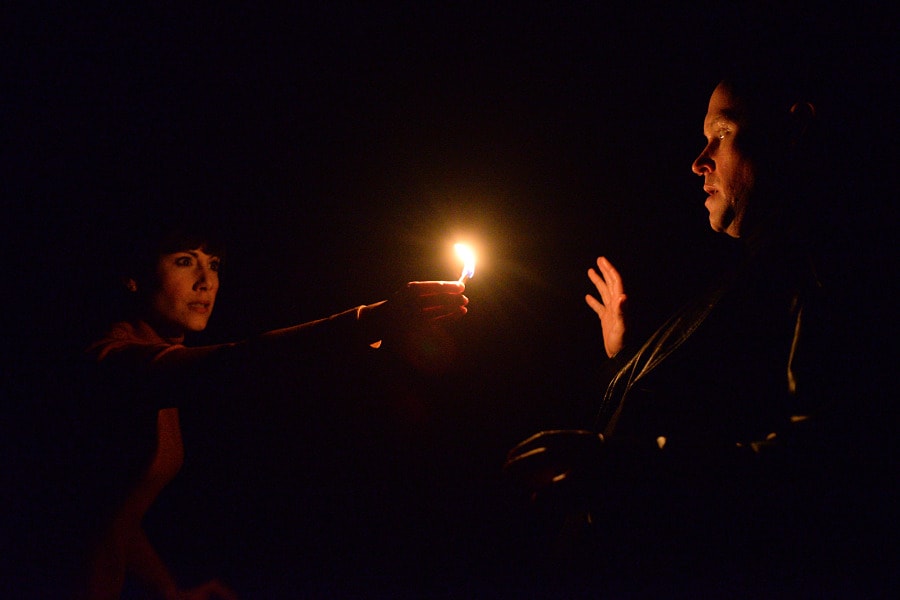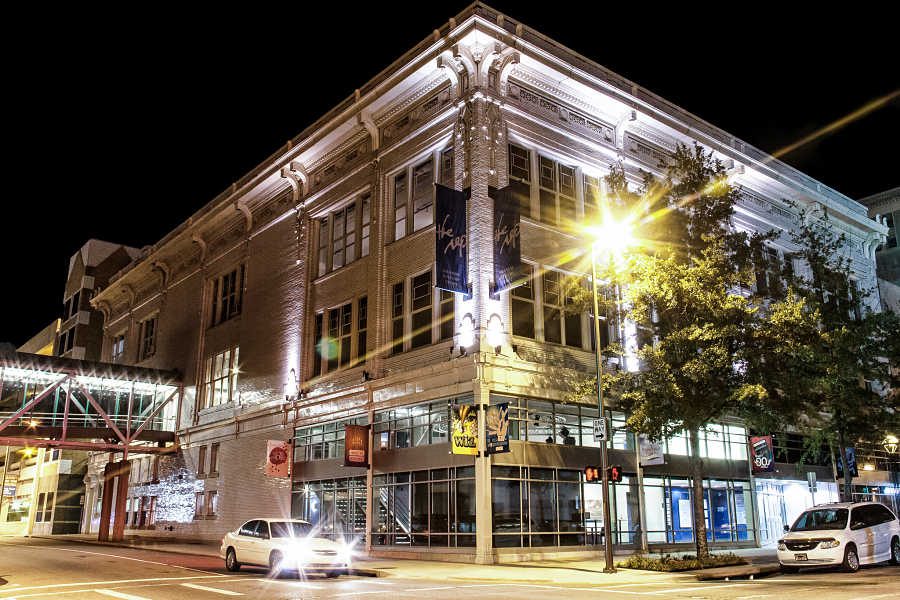LITTLE ROCK, ARK.: You don’t get much more central to a city, or a state, than Arkansas Repertory Theatre, located in a three-story white-brick building on Main Street in downtown Little Rock, the state’s capital, not far from the Arkansas River, the William J. Clinton Library and the Arkansas Arts Center. As the state’s largest resident theatre, let alone arts organization, it serves many missions and audiences; in recent years it has become something of a player on the national scene, with a tryout of a Duncan Sheik/Nell Benjamin musical, Because of Winn-Dixie, in late 2013, and the just-announced world premiere of Windfall, a new play by L.A.-based writer/composer/producer Scooter Pietsch, to be directed by Jason Alexander, that will be part of the Rep’s upcoming season.
We reached out to artistic director Robert Hupp to find out what makes the Rep tick, how he picks its seasons, and what he foresees for the future.
Who founded Arkansas Rep, when, and why?
Arkansas Repertory Theatre was founded in 1976 in a Little Rock storefront by Cliff Fannin Baker. It later moved to an abandoned church and then, in 1988, to its current location, a renovated furniture store, on Main Street. Baker assembled a resident company of actors and began producing plays “that had the power to change lives.” Today, Arkansas Rep maintains its 377-seat mainstage theatre, an offsite construction facility, two apartment buildings and, later this spring, will open a new education center and 200-seat performance space across the street from its Main Street home.

Tell us about yourself and your connection to the theatre.
I came to Arkansas Rep in 1999. Prior to the move south, I spent the previous decade as the artistic director of Jean Cocteau Repertory in New York City. Moving from a small classical rep company in the East Village to Arkansas Rep was something of a culture shock, but I adjusted quickly. I wanted to make the transition because I was very interested in being part of a theatre that could have a singular impact in the cultural and civic life of a community and, in our case, a state. In both cases, at the Cocteau and here at the Rep, I had the great good fortune to succeed visionary and generous founders. Their sustained support and mentorship was, and remains, a godsend.
What sets your theatre apart from others in your region?
We are the only LORT theatre for 300 miles in any direction beyond Little Rock. We are the largest performing arts organization in our state. Most Arkansans have their first professional theatre experience here, and many come to understand the depth and breadth of this art form through our work.

Who is your audience?
This year, 65,000 patrons will see a production at Arkansas Rep. Our audience is diverse and wonderful. They care, they’re engaged and they take pride in this institution. They tell me what they think when they see me in the grocery store. They’re willing to take risks, to go outside their comfort zone, and in this context we strive to connect the themes and ideas of the work on stage to their lives and their own experiences. Our audience is both progressive and conservative. Little Rock is the city that gave this nation Bill Clinton and Mike Huckabee. Our audience reflects their differences.
Tell us about your favorite theatre institution other than your own, and why you admire it.
I really admire what’s happening at TheatreSquared, an emerging company in Fayetteville, Ark. Keep an eye on them. Located in the heart of Walmart country, they’re building an audience for challenging new work, and they’re not afraid to say yes.
How do you pick the plays you put on your stage?
I travel to see as much work as possible, I talk with artists around the country. I listen to our audience. I seek great, relevant stories to tell on our stage. I work with staff to examine the myriad practical and logistical details of my choices. I come back to our mission. We are a creative marketplace; we trade in the exchange of ideas, in conflict and fantasy; in bright, vibrant colors, nuanced shades and shadows. I want all of that in every season.

What’s your annual budget, and how many artists do you employ each season?
Our annual budget hovers around $4 million. This season, we’ll employ approximately 90 actors, 33 musicians, 12 guest designers, 6 guest directors and choreographers. We have a full-time staff of 24.
What show are you working on now? Anything else in your season that you’re especially looking forward to?
We’re currently in rehearsal for Mary Poppins. The rehearsal studio is right above my office, and plaster dust is falling on my desk as I write this. I’m very much looking forward to directing August: Osage County this spring. It’s such a beautifully crafted play, and I’m eager to get to work with the exceptional cast and design team.
Strangest or funniest thing you’ve ever seen (or put) on your stage?
Al Franken. He brought his Air America radio show to Little Rock for the opening of the Clinton Library. We turned the theatre over to his team for a week of broadcasts, and in return, he did a one-man fundraising event for us. His insights into the American political scene were brilliant. Afterwards, he mentioned something about running for the Senate. We all thought that was pretty funny.
What are you doing when you’re not doing theatre?
I worry about what I should be doing at the theatre. In saner moments, my wife, Clea, and I love to travel. Our five children, all grown, are spread out between Little Rock and Senegal, and we like to stay engaged in what they’re doing. Closer to home, we immerse ourselves in the life of our community; our family is active in politics and, in Arkansas, that means there’s never a dull moment.
What does theatre—not just your theatre, but the American or world theatre—look like in, say, 20 years?
Things are changing, evolving, so fast; especially how, when, what and why we communicate with one another. In 20 years we’ll hear and see increasingly diverse voices bringing new stories to life. I think we’ll be less tethered to traditional theatre spaces. The best of us will make theatre more accessible, more integrated into the community and more connected as younger audiences seek meaningful, communal experiences. Traditional design silos will blur as we integrate new technologies into our creative vocabulary. The playmaking process will be more democratic, as traditional gatekeepers (like artistic directors) wane in influence. Popup theatre, locally sourced theatre, theatre not so encumbered by institutional baggage, will make it easier for theatre artists to make a home in cities like Little Rock.


